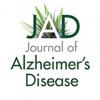29 January 2021
An Integrated Approach for an Effective Prevention of Alzheimer's Disease
This new pioneering study by Prof. Ricardo Maccioni and coworkers of the International Center for Biomedicine will be published in a JAD special issue featuring Latin American investigators. This supports a growing body of research on the Alzheimer’s prevention value of an integrated approach using daily exercise, nutraceuticals, oriental practices such as QiGong along with meditation, and social life. These elements of a healthy style of life are supplemented with the use of reliable biomarkers for early detection of this disease that allows to detection Alzheimer's up to 20 years before symptomatic phase of the disease.
21 January 2021
New Study Shows the Relationship Between Surgery and Alzheimer's Disease
A new study published in JAD carried out by researchers at the Marqués de Valdecilla-IDIVAL University Hospital, in collaboration with researchers at the University of Bonn Medical Center, proposes that major surgery is a promoter or accelerator of Alzheimer's disease. The first author of the publication was Carmen Lage and the principal investigator Pascual Sánchez-Juan.
14 January 2021
Approximately Half of AD Dementia Cases are Mild, One-fifth are Severe
What percent of patients with Alzheimer’s disease currently have severe dementia? Do more people have mild disease? Or are the majority suffering with moderate dementia? A new study using data from the Framingham Heart Study sheds light on these trends. Boston University School of Medicine researchers have found that slightly more than half (50.4 percent) of cases are mild, just under one-third (30.3 percent) of cases are moderate and 19.3 percent are severe cases.
15 December 2020
New Study Suggests Diet Modifications – Including More Wine and Cheese – May Help Reduce Cognitive Decline
The foods we eat may have a direct impact on our cognitive acuity in our later years. This is the key finding of an Iowa State University research study spotlighted in an article published in JAD.
7 December 2020
Caregiver Burden in Dementia During the COVID-19 Crisis
Caregivers of people with dementia and milder forms of neurocognitive disorder bear a heavy burden. They are constantly confronted with challenging symptoms and behaviors and feel they are up against their limits. The latest results from a study indicate that the COVID-19 crisis affects this burden since the pandemic has mental health implications.
25 November 2020
Link Between Alzheimer's Disease and Gut Microbiota is Confirmed
A team from the University of Geneva and the University Hospitals of Geneva in Switzerland, together with Italian colleagues from the National Research and Care Center for Alzheimer's and Psychiatric Diseases Fatebenefratelli in Brescia, University of Naples and the IRCCS SDN Research Center in Naples, confirm the correlation, in humans, between an imbalance in the gut microbiota and the development of amyloid plaques in the brain, which are at the origin of the neurodegenerative disorders characteristic of Alzheimer's disease.
10 November 2020
New Study Finds a Link Between Sleep Apnea and Increased Risk of Dementia
A new study by Monash University has found that obstructive sleep apnea (OSA) has been linked to an increased risk of dementia. The study, published in JAD, and led by Dr Melinda Jackson from the Turner Institute for Brain and Mental Health, found that severe OSA is linked to an increase in a protein, called beta-amyloid, that builds up on the walls of the arteries in the brain and increases the risk of dementia.
10 November 2020
Psychological Status Rather Than Cognitive Status is Associated with Incorrect Perception of Risk of Falling in Patients with Moderate Stage Dementia
Dementia is associated with an impaired self-perception with potentially harmful consequences for health status and clinical risk classification in this patient group with an extraordinary high risk of falling. A new study published in the JAD indicates that psychological factors such as anxiety or fear of falling, cognitive sub-performances such as executive functions, as well as behavioral strategies such as support seeking and interplay with other risk factors should be considered when risk of falling is documented in PWD.
9 November 2020
A Randomized Clinical Trial of Greek High Phenolic Early Harvest Extra Virgin Olive Oil in Mild Cognitive Impairment: the MICOIL Pilot Study
Greek researchers and clinicians investigated for the first time the effect of High Phenolic Early Harvest Extra Virgin Olive Oil versus Moderate Phenolic and Mediterranean Diet as a therapeutic pharmaceutical natural compound for older adults with amnestic Mild Cognitive Impairment. While there is no treatment for MCI and symptomatic only treatment for AD, the global effort against cognitive disorders is focused on early detection and management of AD at the stage of aMCI.
21 October 2020
New Vaccine Targeting Toxic Amyloid-β Could Help halt Alzheimer’s Disease Progression, Preclinical Study Finds
Our immune system’s capacity to mount a well-regulated defense against foreign substances, including toxins, weakens with age and makes vaccines less effective in people over age 65. At the same time, research has shown that immunotherapy targeting neurotoxic forms of the peptide amyloid beta (oligomeric Aβ) may halt the progression of Alzheimer’s disease, the most common age-related neurodegenerative disease.
















